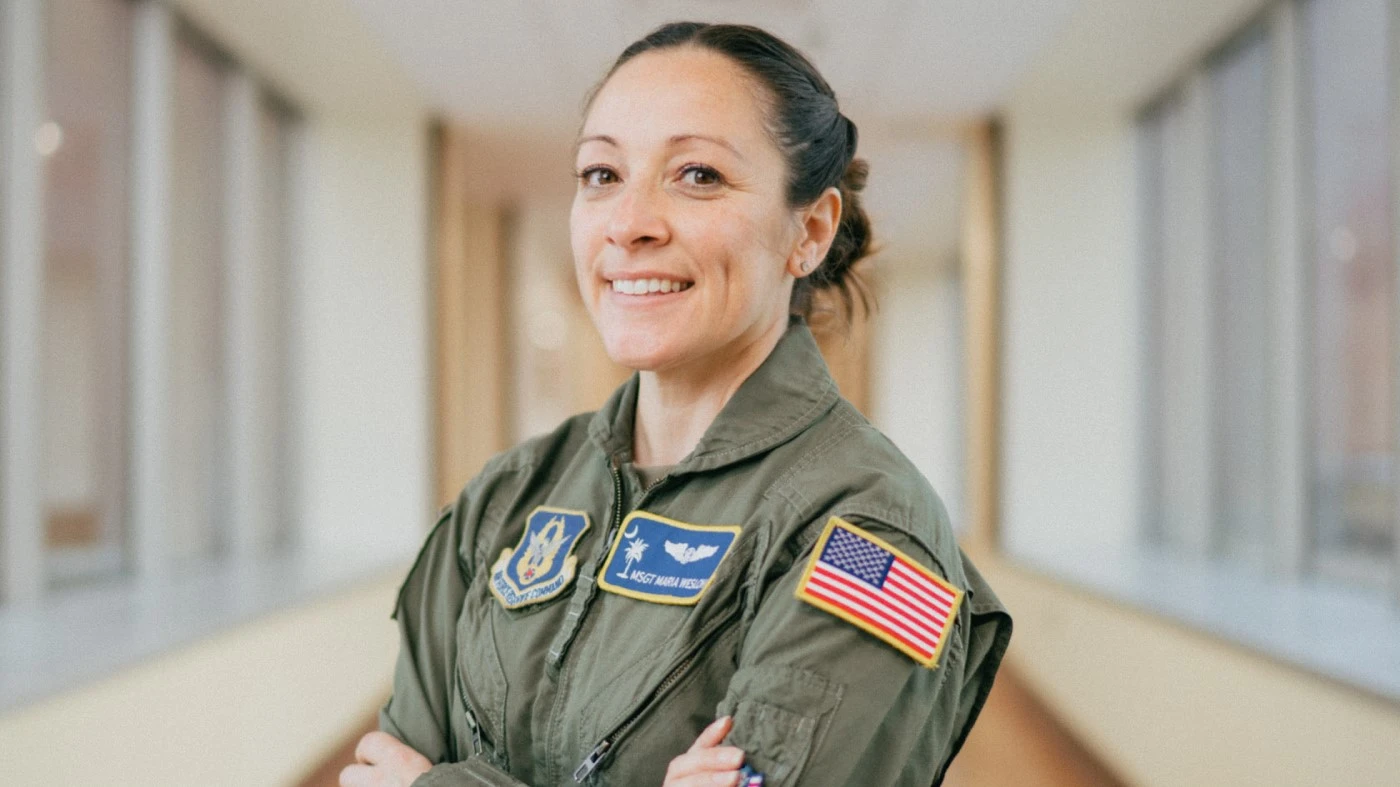Foundational Intermediate Care Technician Course sets you up to succeed at VA
When Veterans want to put their military medical training to use, VA’s Intermediate Care Technician (ICT) program provides an opportunity to take on health care support roles without any additional licensure or training.
Preparing Veterans for that work is the Foundational Intermediate Care Technician (FICT) Course offered at several VA facilities nationwide, including the VA Fayetteville Costal Healthcare System, where Maria Wesloh, an Air Force Veteran, serves as lead intermediate care technician.
“As prior service medics, we are trained how to do various procedures, but when we convert over to the civilian world, we need to learn how the VA carries out procedures,” she explained. “It also provides geriatrics training that the military does not teach us and adds another tool in our tool belt with how to carry out care in VA.”
What initially inspired you to take on a medic role during your service?
When I went to the recruiter’s office to join the Air Force Reserve, I had one job in mind: medical and only medical. I have always been interested in the medical field, ever since I was a child. I originally wanted to be a veterinarian, because I have such a love for animals, but after I had a terrible bike accident when I was in Japan, I saw that the human world was very intriguing.
The whole process from time of injury to post-surgery and the healing process was extremely intriguing to me. That just sealed the deal that the medical field was for me. I also knew that my training with the military would open up many doors for me on the civilian side.
What is the benefit of adding FICT training to someone’s repertoire?
With the FICT course, we can now fine-tune those skills that medics have already been taught, and it teaches them how procedures are carried out in this facility. For example, as a flight medic I don’t suture, yet that was part of my initial training, so the FICT course allows me to get my skills back up to par and to see what standards VA uses.
The FICT course has a module that the military doesn’t teach and that is geriatric emergency medicine. The FICT has taught me how to screen geriatric patients and how to care for this specific population of Veterans.
How has the FICT course contributed to your view of Intermediate Care Technician career?
The FICT training has added some extra tools to my toolbelt and allowed me to open my eyes to looking at the geriatric population through a different lens.
During the foundational training, we went through a dementia experience and were able to experience first-hand what a dementia patient goes through. It allowed me to empathize with them and change the way I approach them in a more understanding way.
Having this added to our backgrounds gives us helpful ways to deal with not just the Veterans we care for, but even family members at home who may be going through this difficult stage in life.
What does doing this work at VA mean to you?
Working at VA is an extremely rewarding job. I love giving back to the Veterans who have served our country, and I love to see how my job comes full circle—evacuating patients from the battlefield to taking care of them at VA.
After starting this job, I had a patient say he recognized me. I just thought maybe he saw me at the hospital on a different day, but then he said, “Afghanistan, summer of 2009.” He then stated we flew him back to Germany and described my crew down to a T. That was an eye-opening experience: Not only did we safely transport that patient from Afghanistan to Germany, but now I get to take care of him post-injury on the civilian side.
Work at VA
Bring your extensive training and experience to VA and make a difference in the lives of other Veterans.
- READ more about our ICT program (PDF).
- HEAR from another intermediate care technician.
- LEARN more about opportunities for transitioning military personnel.
- SEARCH for your VA career at va.gov.
This article was previously published on the VA’s VAntage Point blog.





